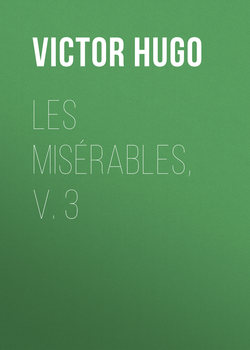Читать книгу Les Misérables, v. 3 - Victor Hugo, Clara Inés Bravo Villarreal - Страница 19
BOOK II
LE GRAND BOURGEOIS
CHAPTER VI
MAGNON AND HER TWO LITTLE ONES
ОглавлениеIn Gillenormand sorrow was translated into choler; he was furious at being in despair. He had every prejudice and took every license. One of the things of which he composed his external relief and internal satisfaction was, as we have indicated, having remained a gay fellow, and passing energetically for such. He called this having a "royal renown," but this renown at times brought him into singular scrapes. One day a big baby, wrapped in rags and crying lustily, was brought to him in a basket, which a maid-servant, discharged six months previously, attributed to him. M. Gillenormand was at that time past his eighty-fourth year, and people around him became indignant and clamorous. "Does the impudent wench expect to make anybody believe this? What audacity! What an abominable calumny!" M. Gillenormand, however, did not feel at all angry. He looked at the brat with the amiable smile of a man flattered by the calumny, and said to the company, "Well, what is the matter? Is there anything so wonderful in it, that you should stand there like stuck pigs and display your ignorance? M. le Duc d'Angoulême, bastard of his Majesty Charles IX., married at the age of eighty-five a girl of fifteen; Monsieur Virginal, Marquis d'Alleuze, and brother of Cardinal de Sourdis, Archbishop of Bordeaux, had at the age of eighty-three by the lady's-maid of Madame Jacquin, the President's wife, a genuine love-child, who was a Knight of Malta, and Member of the Privy Council. One of the great men of this age, Abbé Tabaraud, is the son of a man of eighty-seven years of age. These things are common enough. And then take the Bible! After this, I declare that this little gentleman is none of mine; but take care of him, for it is not his fault." The creature, the aforesaid Magnon, sent him a second parcel the next year, also a boy, and M. Gillenormand thought it time to capitulate. He sent the two brats to their mother, agreeing to pay eighty francs a month for their support, but on condition that the mother was not to begin again. He added, "I expect that the mother will treat them well, and I shall go and see them now and then," which he did. He had a brother, a priest, who was for three-and-thirty years Rector of the Poitiers academy, and died at the age of seventy-nine. "I lost him when quite young," he would say. This brother, who is not much remembered, was a great miser, who, as he was a priest, thought himself bound to give alms to the poor he met, but he never gave them aught but bad or called-in money, thus finding means of going to Hades by the road to Paradise. As for M. Gillenormand the elder, he gave alms readily and handsomely; he was benevolent, brusque, and charitable, and had he been rich his downfall would have been magnificent. He liked everything that concerned him to be done grandly; even when he was swindled one day, having been plundered in the matter of an inheritance by a man of business in a clumsy and obvious manner, he made the solemn remark, "Sir, that was done very awkwardly, and I feel ashamed of such clumsiness. Everything has degenerated in this age, even the swindlers. Morbleu! a man of my stamp ought not to be robbed in that way; I was plundered as if I were in a wood, but badly plundered, sylvœ sint consule dignœ!" He had married twice, as we said; by his first wife he had a girl, who remained an old maid, and by the second another girl, who died at the age of thirty, and who married through love, or chance, or otherwise, a soldier of fortune who had served in the armies of the Republic and the Empire, won the cross at Austerlitz, and his colonel's commission at Waterloo. "He is the disgrace of my family," the old gentleman used to say. He took a great dial of snuff, and had a peculiarly graceful way of shaking his shirt-frill with the back of his hand. He believed very little in God.
